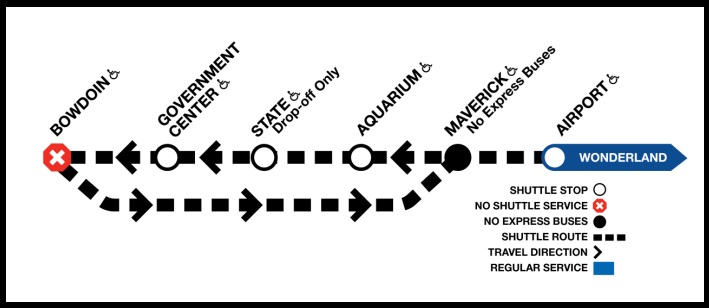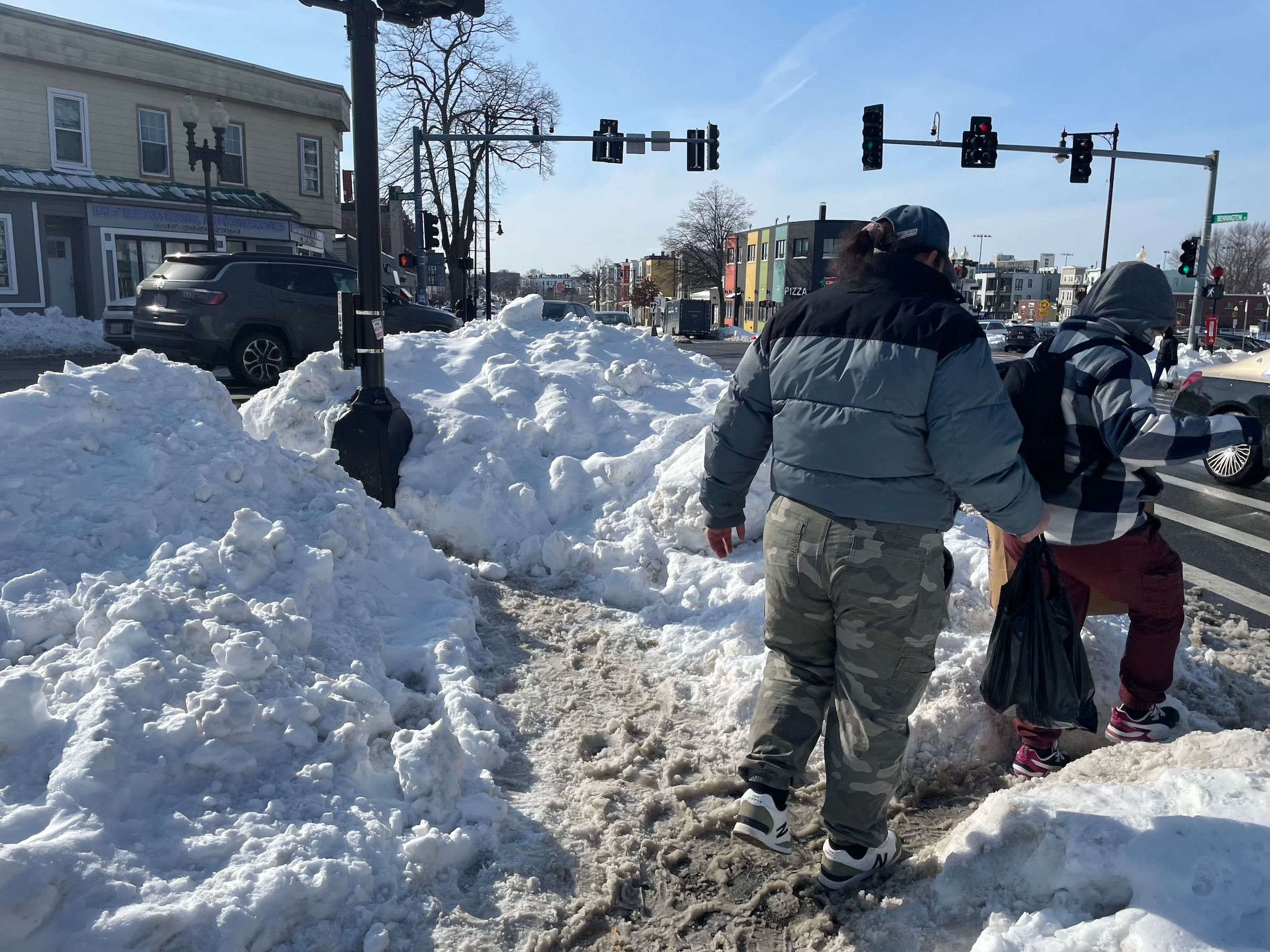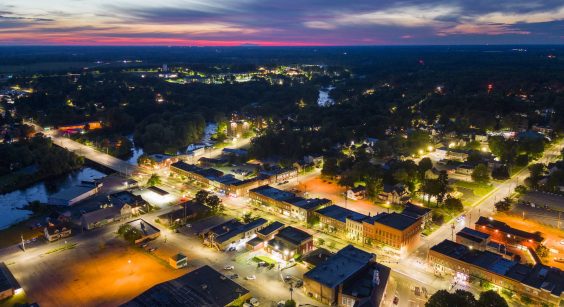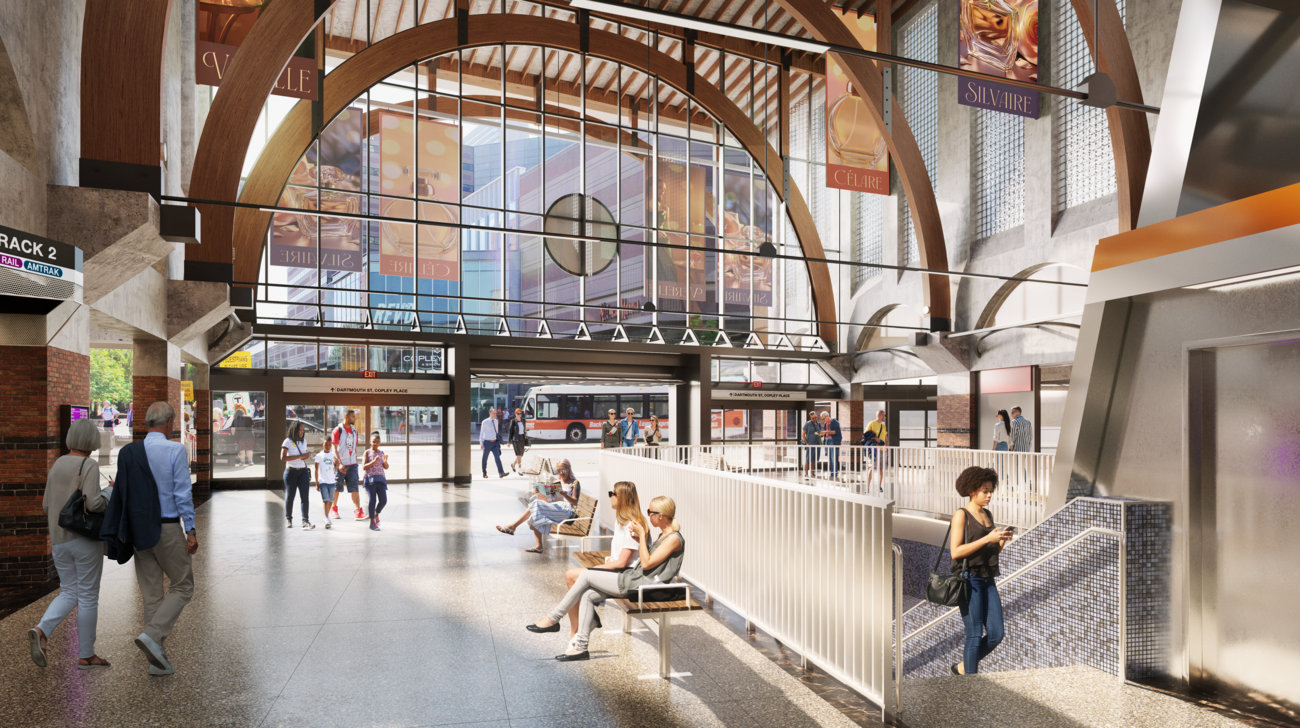Update (March 30): According to an MBTA spokesperson, the proposed tunnel repair work is being postponed, and the Blue Line will continue to operate with normal service on April 2. We have no details about when the work and the next service suspension might occur.
While most transit riders' attention on Monday was focused on the opening of the Green Line Extension, the T quietly posted an announcement on its website that the Blue Line between the Airport and downtown Boston will shut down from April 2 to April 14 to allow crews to replace 1,800 feet of track and upgrade other infrastructure in the tunnel under Boston Harbor.
"The 13-day work 'surge' replaces one year of performing the work during nights and weekends," wrote MBTA spokesperson Joe Pesaturo in an email to StreetsblogMASS. "It also significantly reduces the costs that would be associated with the contractor having to mobilize and demobilize each night and each weekend, (and) reduces costs for bus shuttles and transit operations support."
The T conducted a similar 2-week shutdown of the Blue Line in May 2020. However, that shutdown occurred in the middle of the state's first Covid-19 pandemic stay-at-home orders, when ridership was relatively low, and the T's replacement bus shuttles didn't get stuck in traffic jams.
The spring 2020 shutdown also came with more warning for riders: the T had initially announced that the line would be closed for maintenance work in February of that year, and later consolidated the work to a 2-week period in response to the pandemic.
This time around, the public announcement of the closure comes less than two weeks before the closure.
"I’m kind of in shock. I didn’t know anything about this, and I consider myself pretty in-the-know," said Tina St. Gelais Kelly, an East Boston resident who relies on the Blue Line for her daily commute into downtown Boston.
In a phone conversation with StreetsblogMASS on Monday afternoon, St. Gelais Kelly stressed how important the Blue Line is to her family (in addition to her own commute, her child also takes the subway to school on a daily basis) and to her neighborhood.
"That's my livelihood, that’s my child’s education, that’s my neighbor's connection to their doctor’s appointment. We're on an island (in East Boston) and we need access," she said.
Jarred Johnson, executive director of TransitMatters, also only learned of the T's plan for the Blue Line on Monday, during the MBTA's Green Line grand opening event. He says it's "pretty unusual" for the T to shut down part of its rapid transit network on such short notice.
Johnson thinks that the T was more proactive about announcing closures under its former governance board, the Fiscal and Management Control Board, which dissolved in June 2021. The successor board meets less often, and has taken a less active role in its oversight of the T's operations.
"There are elements of the FMCB's schedule that weren't sustainable," admits Johnson, "but we need a board that's more proactive about stuff like this."
Johnson also noted that the Blue Line has retained more of its ridership than any other MBTA rapid transit line through the course of the pandemic, largely because the neighborhoods it serves in East Boston, Chelsea, and Lynn have high populations of transit-dependent riders.
Julia Wallerce, Boston program manager for the Institute for Transportation and Development Policy, rides the Blue Line regularly from her home in Winthrop. She's less concerned with the lack of notice than she is about the T's plan to make sure its replacement shuttles won't get stuck in traffic.
"For people who rely on the Blue Line, there's not really much you can do for alternatives - it's more about what's going to be done to mitigate the delay and inconvenience of the bus shuttles. I feel like the lack of notification is less important than having a robust plan to make the shuttles as fast as possible," Wallerce told StreetsblogMASS on Monday.
According to a slide deck from an MBTA neighborhood meeting, the T is planning to paint new bus lanes around its Maverick Square bus loop, a busy bus transfer point, and to allow shuttle buses passage through two gates that will provide a more direct route through the neighborhood. But buses will still operate in mixed traffic along most of the shuttle routes between East Boston and downtown.






